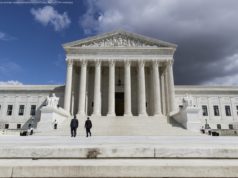STUART, Fla. – Despite millions of dollars spent against him, U. S. Sen. Bill Nelson is favored to win his re-election bid in Florida,…
STUART, Fla. – Despite millions of dollars spent against him, U. S. Sen. Bill Nelson is favored to win his re-election bid in Florida, according to the latest poll released Tuesday.
The Quinnipiac University poll found 53 percent of likely voters back the Democratic incumbent while 46 percent support his Republican opponent, Gov. Rick Scott.
This is the first poll that’s shown Nelson has a commanding lead over Scott. Other recent polls have maintained the race is a toss-up or Scott has an extremely narrow lead. An earlier Quinnipiac poll, released Sept. 5, found the race was a dead tie.
The poll is good news for Nelson, who has been heavily outspent by the governor and Republican allies. Florida is one of 10 states expected to determine who controls the U. S. Senate next year. Republicans hold 51 of the chamber’s 100 seats.
“A Nelson win would be a big boost for Democratic hopes of wresting control of the U. S. Senate from the GOP,” said Peter A. Brown, assistant director of the poll.
Six weeks before Election Day, nearly all — 94 percent — of those polled said they had made up their mind about who to vote for in the race.
Women are heavily backing Nelson: 58 percent said they plan to vote for him while 41 percent said they plan to vote for Scott. Men are divided: 51 percent said they plan to vote for Scott while 47 percent said they plan to vote for Nelson.
Polls show disparate results for Hispanics, however. The latest poll shows Nelson winning them 61-39 and the Sept. 5 poll shows Scott winning them 59-39.
The most important issues in the election, according to those polled, are:
The poll included responses from 888 likely voters in Florida and was conducted from Sept. 20 through Sept. 24. It has a 4 percentage points margin of error.
More: Midterms: Stunning Florida primary result shifts Bill Nelson-Rick Scott Senate race from middle to extremes
Also: Trump accuses China of trying to sway U. S. midterms with retaliatory tariffs






